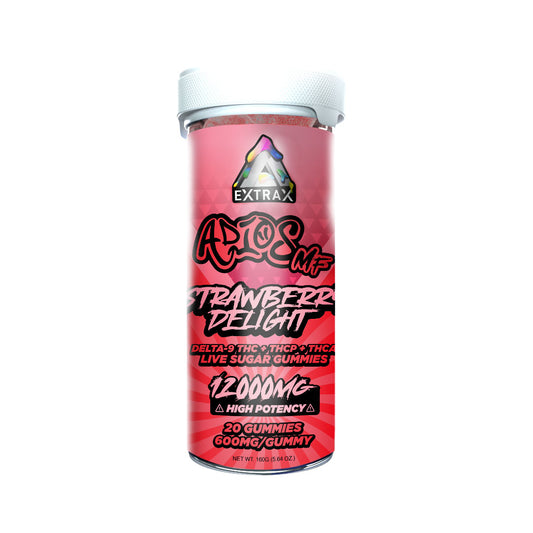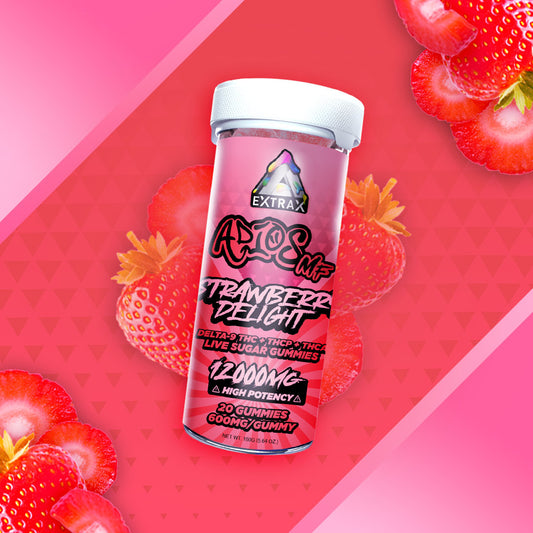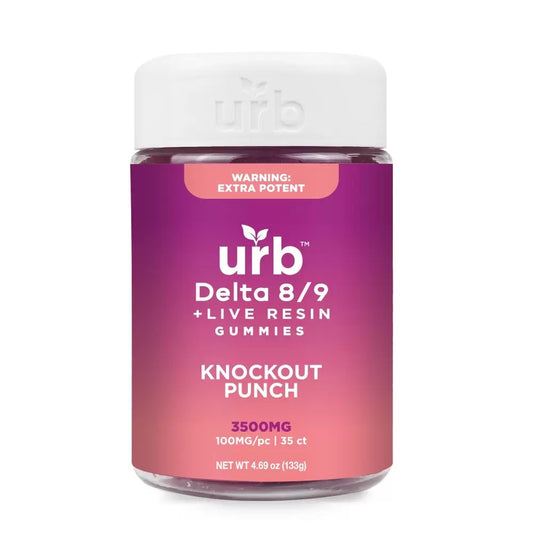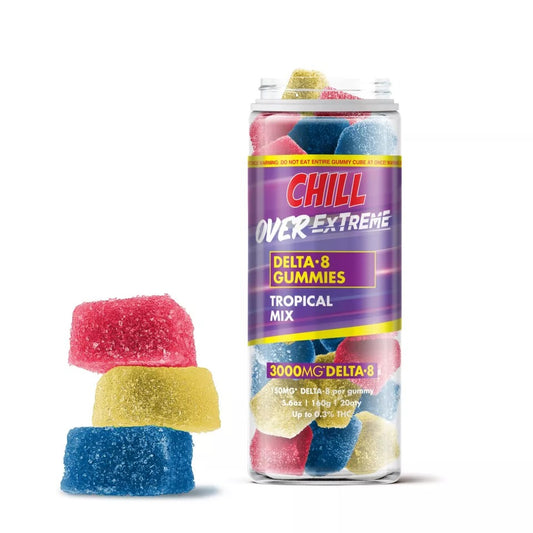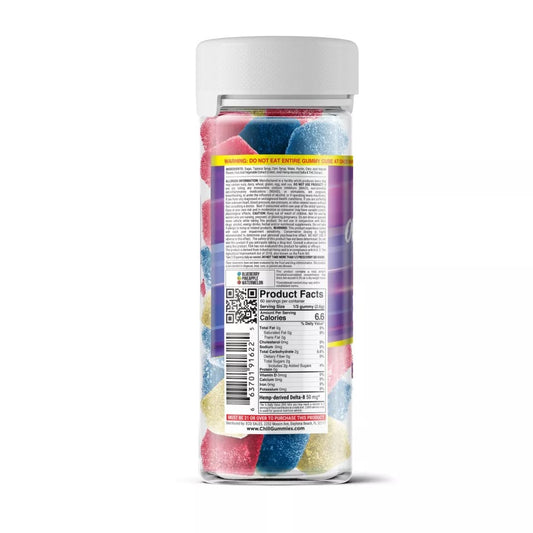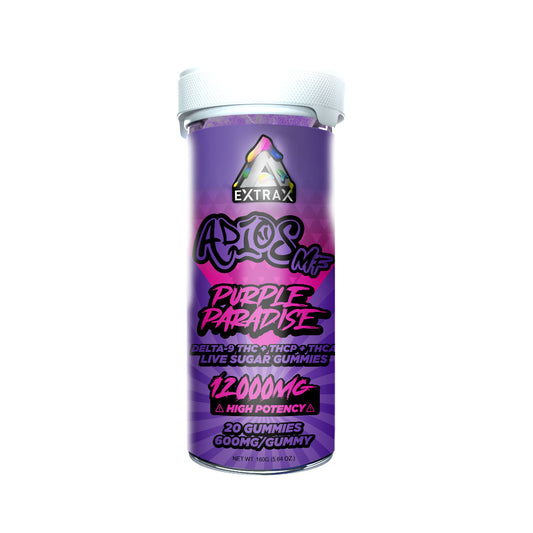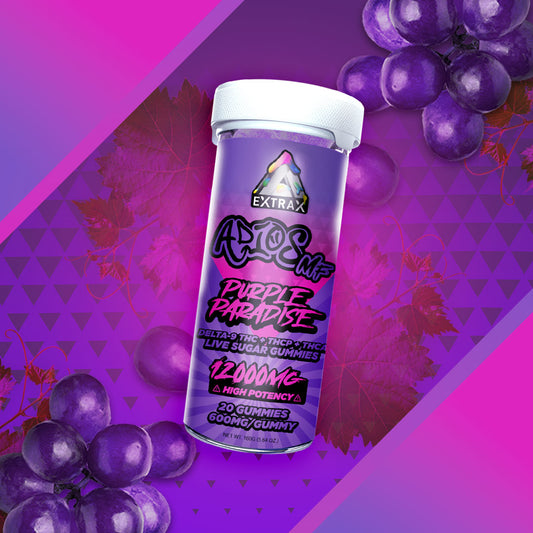
How Delta 8 May Help with Sleep and Sleep Issues
As the importance of quality sleep becomes increasingly recognized, more people are turning to natural remedies to help improve their rest. Hemp-based cannabinoids, such as CBD and Delta 8 THC, have gained attention for their potential benefits in supporting healthy sleep patterns. In this article, we'll explore how these cannabinoids may assist with sleep and address common sleep issues, while being mindful to avoid medical claims.
1. Understanding the Endocannabinoid System and Sleep
The human body contains a complex network called the endocannabinoid system (ECS), which plays a key role in regulating various physiological processes, including sleep. The ECS consists of receptors, enzymes, and endocannabinoids (naturally occurring compounds in the body) that work together to maintain balance, or homeostasis.
Hemp-based cannabinoids like CBD and Delta 8 THC interact with the ECS, potentially influencing sleep patterns and quality. While research is still in its early stages, these interactions suggest that cannabinoids might play a role in promoting better sleep[1].
2. The Role of CBD in Sleep Support
CBD (cannabidiol) is one of the most well-known cannabinoids derived from hemp. Unlike THC, CBD is non-psychoactive, meaning it doesn't produce a "high." Instead, it's often associated with a sense of calm and relaxation, which may contribute to better sleep.
- Reducing Anxiety: Anxiety is a common barrier to falling asleep. Some studies suggest that CBD may help reduce anxiety, potentially making it easier to relax and drift off to sleep[2]. By calming the mind, CBD might help individuals fall asleep faster and enjoy more restful sleep.
- Pain Management: Chronic pain is another factor that can disrupt sleep. CBD has been explored for its potential to alleviate pain, which might, in turn, help individuals achieve a more comfortable and uninterrupted night's sleep[3].
- Regulating Sleep Cycles: Preliminary research indicates that CBD may interact with receptors in the brain responsible for sleep-wake cycles. This interaction could help promote a more balanced and consistent sleep pattern, although more studies are needed to fully understand this effect[4].
3. Delta 9 THC and Its Potential Sleep Benefits
Delta 9 THC (tetrahydrocannabinol) is another cannabinoid found in both hemp and marijuana. It's known for its psychoactive effects, but when consumed in controlled amounts, Delta 9 THC may offer some benefits for sleep.
- Relaxation and Euphoria: Delta 9 THC is often associated with feelings of relaxation and euphoria, which may help ease the transition to sleep. This relaxing effect might be particularly useful for individuals who struggle with insomnia or restlessness before bed[5].
- Shortening Sleep Latency: Sleep latency refers to the amount of time it takes to fall asleep after getting into bed. Some users report that Delta 9 THC helps reduce sleep latency, allowing them to fall asleep more quickly[6].
- Deep Sleep: Research suggests that Delta 9 THC might increase the amount of time spent in deep sleep, a crucial stage for physical restoration and overall health. However, it's important to note that higher doses of THC may have the opposite effect, leading to disrupted sleep cycles[7].
4. Combining Cannabinoids: The Entourage Effect
The "entourage effect" refers to the idea that cannabinoids may work better together than in isolation. This synergy might enhance the sleep-promoting effects of hemp-based products. For example, a product containing both CBD and Delta 8 THC may offer a balanced approach, where CBD helps reduce anxiety and pain, while Delta 8 THC promotes relaxation and deep sleep[8].
Full-spectrum hemp products, which contain a range of cannabinoids, terpenes, and other beneficial compounds, might provide this entourage effect. This could lead to more effective sleep support compared to products containing a single cannabinoid.
5. How to Use Hemp-Based Cannabinoids for Sleep
For those considering hemp-based cannabinoids to help with sleep, it's essential to approach usage thoughtfully:
- Start Low and Go Slow: Especially for beginners, starting with a low dose is important to gauge your body's response. You can gradually increase the dose as needed to find what works best for you.
- Timing is Key: Taking cannabinoids too close to bedtime might not give them enough time to take effect. For edibles, like gummies, consider taking them 1-2 hours before bed to allow for digestion and onset of effects.
- Consistency Matters: Regular use of cannabinoids may lead to more consistent results. If you're using them for sleep, try to incorporate them into your nightly routine at the same time each night.
- Choose the Right Product: Whether you prefer gummies, tinctures, or capsules, ensure that the product is of high quality and free from contaminants. Look for products with clear labeling and third-party lab results to confirm potency and purity.
6. What the Research Says
While research on cannabinoids and sleep is still evolving, early studies show promising results:
- CBD and Anxiety-Related Sleep Disorders: A 2019 study published in The Permanente Journal found that CBD may help improve sleep and reduce anxiety in patients. The majority of participants reported improved sleep within the first month of using CBD[9].
- THC and Sleep Quality: A review of studies published in the Journal of Clinical Psychopharmacology suggests that THC may reduce the time it takes to fall asleep and increase deep sleep. However, the effects may vary based on dosage and individual tolerance[10].
- The Entourage Effect: Some research indicates that full-spectrum hemp products, which contain multiple cannabinoids and terpenes, may offer more comprehensive benefits for sleep than isolated compounds like CBD alone[11].
7. Potential Considerations and Side Effects
While hemp-based cannabinoids may offer sleep benefits, there are some considerations to keep in mind:
- Tolerance and Dependence: Regular use of Delta 8 THC may lead to tolerance, where the same dose becomes less effective over time. In some cases, this can also lead to dependence, so it's important to use THC responsibly[12].
- Daytime Drowsiness: Depending on the dose and timing, cannabinoids may cause lingering drowsiness the next day. If this occurs, adjusting the timing or dose might help reduce this effect[13].
- Legal Considerations: While hemp-derived cannabinoids like CBD and Delta 8 THC are legal in many areas, it's essential to be aware of the laws in your region. Always purchase from reputable sources that comply with local regulations[14].
8. Conclusion: A Natural Approach to Better Sleep
Hemp-based cannabinoids, including CBD and Delta 8 THC, show promise as natural options for supporting sleep and addressing sleep-related issues. By interacting with the endocannabinoid system, these cannabinoids may help promote relaxation, reduce anxiety, and improve sleep quality.
As with any supplement, it's important to use cannabinoids responsibly and be aware of how your body responds. With the right approach, hemp-based cannabinoids might become a valuable part of your nightly routine, helping you achieve the restful sleep you need to thrive.
References
- National Institute on Drug Abuse - Cannabinoids and Sleep
- National Institutes of Health - CBD for Anxiety
- European Journal of Pain - CBD for Pain Relief
- Frontiers in Pharmacology - CBD and Sleep Regulation
- Journal of Cannabis Research - THC and Relaxation
- Sleep Disorders Journal - THC and Sleep Latency
- Sleep Medicine Reviews - THC and Deep Sleep
- British Journal of Pharmacology - The Entourage Effect
- The Permanente Journal - CBD for Sleep and Anxiety
- Journal of Clinical Psychopharmacology - THC and Sleep Quality
- British Journal of Pharmacology - The Entourage Effect
- National Institute on Drug Abuse - THC Tolerance and Dependence
- Sleep Health Journal - Cannabinoids and Daytime Drowsiness
- U.S. Food & Drug Administration - Legal Considerations of Cannabinoids

